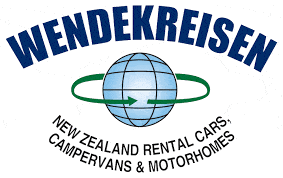Close
Locations Vehicles About - 1300 547 214
Use the 'Comments' field on the booking form to indicate the age and height & weight of the children requiring baby and/or booster seats. This will ensure that the hire company is as best prepared for your arrival and vehicle pick-up as possible. Please do note that child seats are on request and therefore subject to supplier availability.
You can supply your own child seat as long as it conforms to New Zealand Standard NZS 1754.
Whilst we always endeavor to publish the latest available information and pricing as these are managed by our suppliers they are subject to change beyond our control. Therefore the below should be treated as a guide as to what can be expected from each rental company with respect to Child seating.
Rates are inclusive of GST but nett of any taxes and fees that a supplier may charge based on pick-up location. Updated February 2020
| Child Seat | |
 | Child Seat $34.78 per Hire |
 | Child Seat $15 per Day |
 | Child Seat $15 per Day |
 | Child Seat $34.78 per Hire |
 | Child Seat $14.95 per Day |
 | Child Seat $50 per Hire |
 | Child Seat $45 per Hire |
 | Child Seat $59.80 per Hire |
| Child Seat | |
 | Child Seat $35 per Hire* |
 | Child Seat $36 per Hire |
 | Child Seat $35 per Hire* |
 | Child Seat $50 per Hire |
 | Child Seat $45 per Hire |
 | Child Seat $35 per Hire* |
 | Child Seat $40 per Hire |
 | Child Seat $45 per Hire |
 | Child Seat $36 per Hire |
 | Child Seat $36 per Hire |
 | Child Seat $36 per Hire |
 | Child Seat $35 per Hire |
 | Child Seat $50 per Hire |
 | Child Seat $50 per Hire |
 | Child Seat $35 per Hire* |
 | Child Seat $45 per Day |
 | Child Seat $40 per Hire |
 | Child Seat $25 per Hire |
*Apollo, Cheapa Campa, Hippie Campers and Star RV do not accommodate infants under 6 months
As the driver, you must make sure that any child under five years is properly restrained by an approved child restraint. They must not travel in the car if you can't put them in an approved child restraint.
Children aged five to seven years must use a child restraint if there's one available. Otherwise they must use a safety belt if one is available. If there are no child restraints or safety belts available, they must travel in the back seat.
Children aged 8 to 14 years must use a safety belt if one is available. Otherwise, they must travel in the back seat.
Note: A child under 15 years old may sit beside the driver only if the child is restrained by a child restraint or safety belt (whichever is appropriate for their age).
As a general rule, if your child's head is higher than the back of the child restraint, it's time to move them into the next type of child restraint. (A child can wear an adult safety belt when the belt crosses their pelvis, not their tummy.)
Some restraints fit the shape of some vehicle seats better than others. Make sure the child restraint you rent or buy fits your vehicle seats properly and ask if you can return it if you find it doesn't fit properly.
The Plunket Society recommends that you keep your baby in a rear-facing restraint until they are one year old. This is the safest position for them, and many child restraints now allow for this.
All child restraints, including forward-facing restraints, are best installed in the rear passenger seat (not in the front). If you must use a forward-facing child restraint in the front passenger seat (eg, because there aren't any rear seats), move the passenger seat back as far as it will go. If you can switch the front passenger airbag off in your vehicle then do this, but remember to switch it on again when the seat is used by an adult.